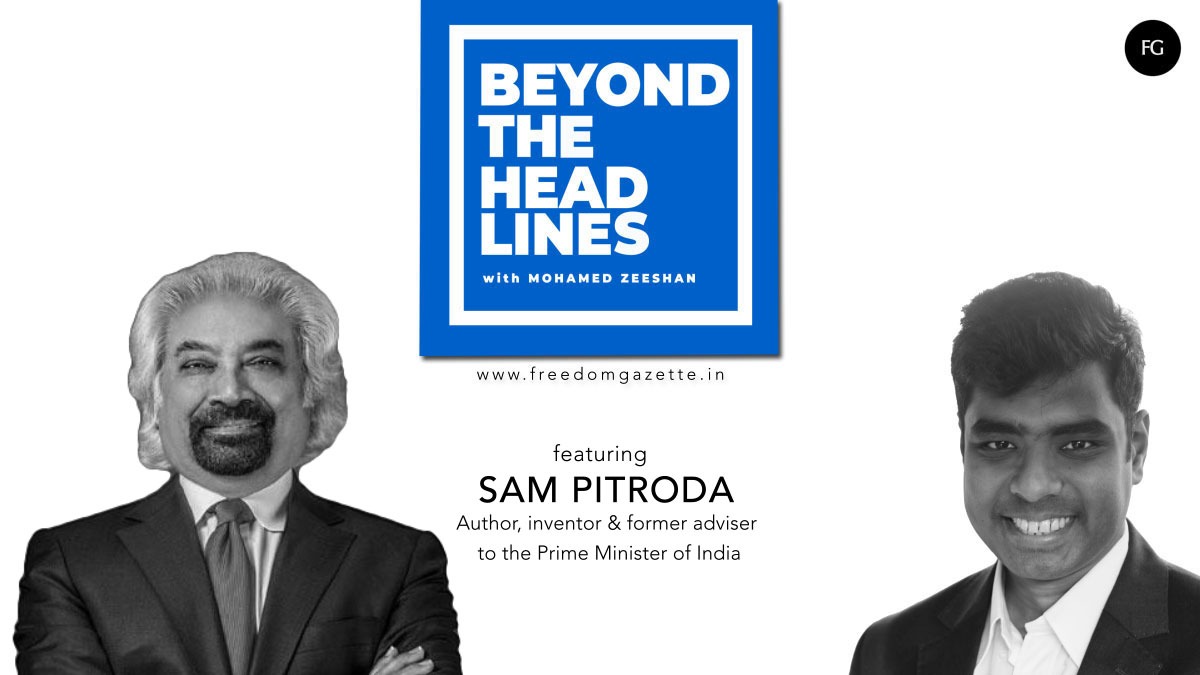In this episode of Beyond the Headlines, I spoke with Sam Pitroda, the renowned technologist and inventor who was at the forefront of India’s telecom revolution in the last century, and the author of multiple bestselling books, most recently, Redesign the World: A Global Call to Action.
Pitroda talked about the recently concluded United Nations Climate Change Conference (COP26) held at Glasgow and why the world has struggled to find a way to act on climate change for so many decades. He lamented that world leaders often prioritise narrow national interests over global interests: “If we can create a $3 trillion package to respond to COVID-19 in the U.S., why can’t we create a $10 trillion package to respond to this global crisis [climate change] … for the next 30-40 years?”
Pitroda also weighed in on the debate between environmental protection and economic growth, arguing that technology has advanced enough to do away with sources of pollution. He cited the example of Delhi, saying that it has a “great standard of living compared to other parts of India but you can’t breathe air!” He said that India’s urgent priority should be to deal with the “floods, droughts, smoke” which are killing several people each year.
Speaking about his new book, Pitroda pointed out that the world now enjoys an abundance of basic necessities such as food and yet suffers widespread starvation. “We spend $2 trillion on defence every year,” he said. “All we need is one-tenth of that – $200 billion a year – to eliminate hunger.” Instead, about 40 percent of food is wasted every year around the world, he said: 40 percent before it comes to the table in the developing world, due to logistics issues, and 40 percent after it comes to the table in the developed world, due to irresponsible wastage.
On the misuse of technology in an age of authoritarianism, Pitroda said that the world is still in the “early phase of the information age” and many are still trying to understand how to regulate tools such as social media and artificial intelligence. Technology tends to bring “democratisation of information, decentralisation of decision-making, demonetisation of services” – and as a result, it is taking power away from governments around the world. Populism and the rise of authoritarianism, he argued, is a “knee-jerk reaction” from political leaders to this loss of control. But as technology gets more deep-rooted, all autocratic regimes will have to recognise that you’ve got to change, he said. “You cannot have command and control architecture anymore.”
For more, listen to the conversation below, follow us on Spotify, and subscribe to our weekly newsletter for updates on these conversations.
Mohamed Zeeshan is a Founding Partner and the Editor-in-Chief of Freedom Gazette. He is the author of Flying Blind: India's Quest for Global Leadership (Penguin 2021). He is currently a foreign affairs columnist for The Diplomat, South China Morning Post and Haaretz, and writes 'The Z Factor' - a monthly Sunday column in the Deccan Herald. He has previously worked at the United Nations in New York and with the global consulting firm Kearney in Dubai. He is a graduate of International Affairs from Columbia University.


